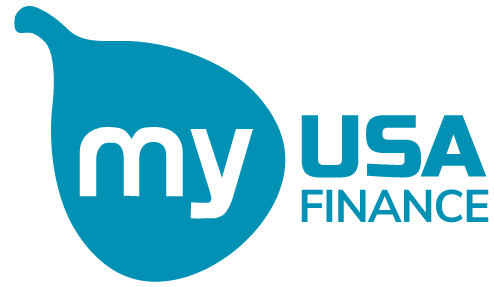Having bad credit can make it difficult to secure a personal loan, but it’s not impossible. If your credit score is lower due to missed payments, high debt utilization, or past financial challenges, you may still have options.
Personal loans can help cover emergency expenses, consolidate debt, or fund major purchases—provided you find the right lender and terms.
In this guide, we’ll walk you through the steps to improve your chances of getting approved for a personal loan with bad credit.
Looking For A Persona Loan?
Explore your options today!
What Is Bad Credit?
Bad credit refers to a low credit score that indicates a history of missed or late payments, high credit utilization, or defaulted accounts. Lenders use credit scores to determine how risky it is to lend money to a borrower.
A FICO score below 580 is generally considered “bad credit.”
How Your Credit Score Is Calculated
Your credit score is made up of several factors:
Payment history (35%) – Late or missed payments can significantly lower your score.
Credit utilization (30%) – Using too much of your available credit can hurt your score.
Length of credit history (15%) – The longer you’ve had credit, the better.
Credit mix (10%) – A diverse credit portfolio (credit cards, loans, etc.) can help.
New credit inquiries (10%) – Too many applications in a short time can lower your score.
Read more: What Credit Score Do You Need For A Personal
What Are Bad Credit Loans?
If your credit score is low, you may find it challenging to qualify for traditional loans. However, bad credit loans are designed for borrowers with low credit scores. These loans often come with higher interest rates and less favorable terms, so it’s important to compare options.
Read more: Can I Get A Personal Loan With a 500 Credit Score?
How to Get a Personal Loan with Bad Credit
If you have bad credit, follow these steps to improve your chances of loan approval:
2. Assess Your Ability to Repay
Avoid taking out a loan you can’t afford. Calculate your monthly budget, expected payments, and repayment schedule. Consider alternative options if a loan would strain your finances.
3. Compare Bad Credit Loan Offers
Shop around for loans from different sources, such as:
Local banks or credit unions
Online lenders specializing in bad credit loans
Peer-to-peer lending platforms
Comparing lenders helps you secure the best possible terms.
Read More: How to Apply For A Bad Credit Loan?
4. Pre-Qualification
Many lenders offer pre-qualification, which allows you to check your eligibility without a hard credit inquiry. This prevents unnecessary dings on your credit score.
5. Consider a Co-Signer
If your credit score is too low, having a co-signer with good credit can improve your chances of approval. However, your co-signer will be responsible for repaying the loan if you default.
6. Gather Required Documents
Lenders will require financial documents, including:
Personal information (SSN, ID, address)
Proof of income (pay stubs, tax returns)
Bank statements
Utility bills (to verify your address)
Having these documents ready can speed up the loan approval process.
7. Prepare for a Hard Credit Check
Once you officially apply, lenders will perform a hard credit check, which may slightly lower your score. Be mindful of how many lenders you apply to in a short period.
Read more: Does Applying for a Personal Loan Hurt Your Credit Score?
Types of Loans for Bad Credit
Here are the most common loan options for borrowers with bad credit:
1. Unsecured Personal Loans
These loans don’t require collateral but often have higher interest rates. They’re available through online lenders, credit unions, and some banks.
2. Secured Personal Loans
These require collateral (e.g., a car, home, or savings account). Secured loans generally have lower interest rates since they pose less risk to lenders.
3. Credit Cards for Bad Credit
If you don’t qualify for a personal loan, a secured credit card or a credit card for bad credit can be an alternative. Responsible use can help rebuild your credit score.
4. Cash Advances
Some lenders and credit card companies offer cash advances, but these come with high fees and interest rates, making them best for emergencies.
5. Payday Loans
While payday loans provide fast cash, they have extremely high APR rates and short repayment terms. Only consider these if absolutely necessary.
FAQ: Personal Loans for Bad Credit
1. Can I get a personal loan with bad credit?
Yes, many lenders specialize in bad credit loans. You may have to pay higher interest rates, but options are available.
2. What is the easiest loan to get with bad credit?
Secured loans, payday loans, and bad credit personal loans are often easier to obtain. However, payday loans should be a last resort due to high fees.
3. Will taking out a personal loan improve my credit score?
Yes, if you make timely payments, your credit score may improve over time. However, missed payments can further damage your credit.
4. How much can I borrow with bad credit?
Loan amounts vary depending on the lender and your income. Most bad credit loans range from $500 to $10,000.
Apply for a Personal Loan Today
Are you ready to take the next step toward securing a personal loan? While having bad credit can make borrowing more difficult, there are still lenders willing to work with you. By following the steps above, you can improve your chances of approval and secure a loan that meets your financial needs.
Get started today and find a personal loan that fits your situation. Apply now and take control of your financial future!











